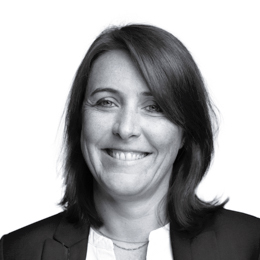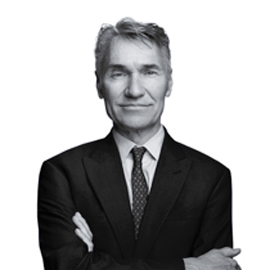International expansion
Less than 20 years ago, your company was still very ‘French’. Why did you set out to expand internationally?
When I took over the family business in 1992, our business was 100% focused on fitting out changing rooms. At the time, we were completely dependent on the local authorities market, with a restrictive electoral calendar. In 2002, to find a way out of this dependency, we diversified by acquiring the ISD group, which owned Gymnova, a gymnastics equipment manufacturer, and Entre-Prises, which builds climbing walls. However, these two national market leaders were very dependent on public procurement. We came to the conclusion quite swiftly that our company would require significant international expansion in order to develop.
What strategy did you adopt for this international ramp-up?
We targeted markets with potential by hiring international staff and pursued an ambitious acquisition policy, in particular with the acquisition of the Dutch company Janssen-Fritsen in 2014, and the US company Fun Spot in 2018. At the same time, we made a huge effort in terms of marketing and R&D to offer top quality products, segmented by target and tailored to each market.
We came to the conclusion quite swiftly that our company would require significant international expansion in order to develop
How is the group organized now to manage this international dimension?
We opted for an organisational structure arranged around the products rather than on geographical regions, with three divisions (gymnastics, climbing and sportainment and changing rooms) that encompass French and foreign subsidiaries with their own support services. At group level, an executive committee brings executive management and division heads together. Each division each has its own executive committee.
We could be talking about a centralised organisational structure...
In appearance only. In reality, it’s quite the opposite. We have chosen to give our subsidiaries a significant amount of room for manœuvre on a local level. We operate on responsible markets with customers who care about proximity and quality, as well as the brand. Of the 20 or so brands in our portfolio, two-thirds are companies with who have been operating for a long time in one particular geographical area. This approach, based on a high level of autonomy for our subsidiaries, has become a necessity. On the few occasions that we have tried to run a new operation from France it hasn’t worked.
Do you nonetheless try to establish Abéo corporate culture in your subsidiaries?
Not in a ‘top-down’ way. While there is a shared culture, this is mainly because we ensured early on that we shared values with the companies we acquire. Most of them are - like us - family businesses.
We opted for an organisational structure arranged around the products rather than geographical regions.
What is the financial partner’s role in this international transformation?
Our development strategy is based to a large extent on acquisitions. In order to seize opportunities, we need to be able to rely on financial partners like Crédit Mutuel Equity who have the capacity to analyze potential targets with us, and invest quickly. As well as being fully in agreement on development strategy, this type of financial partner can respond quickly because it invests in its own equity.
What the partner says

In 2019, the group generated 77% of its revenue outside France.
In 2009, when we became an investor in Abéo, the group was generating three-quarters of its revenue in France. Ten years on, we can see that this trend has been completely reversed and in 2019, the group is generating 77% of revenue outside France. This is expected to climb to 80% next year.
Over the course of the last decade, a large part of this international expansion has been achieved by means of acquisitions which include Spieth America, Propsec and Janssen Fristen, to whom we have contributed by financing them in part.
On the back of this expansion, the group’s governing bodies have also become more international, and the group’s intercultural management team - which we share through our presence on the board of directors - also enhances our working life.
The Abéo group in brief
1 600 employees
21 brands
230M€ in revenue
The Abéo group is based in Rioz. It is currently world market leader in sports and leisure equipment and owns flagship brands such as Gymnova, Spieth and Clip’n Climb.
The group has three main divisions (gymnastics equipment, artificial climbing structures and sportainment and changing rooms) in which it enjoys the position of worldwide market leader. Its leadership can be seen in volume sold as well as its participation in international sporting events such as the London and Rio Olympic Games.




